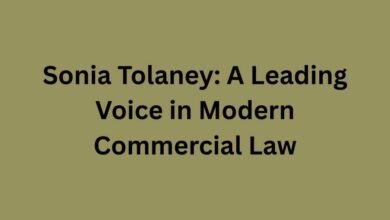Thomas Eggar: From Historic Law Firm to Modern Legal Legacy

The name Thomas Eggar carries considerable weight in the history of British legal services. Once a well-established regional law firm, it became part of the national conversation when it merged with Irwin Mitchell in 2015. For generations, Thomas Eggar built a reputation for high-quality advice in private client, business, and property law. Its influence continues today through the work of its successor firm, Irwin Mitchell, and through the many professionals who once practised under its banner.
The Origins of Thomas Eggar
Thomas Eggar began life in the nineteenth century as a local firm dedicated to serving the needs of individuals, families, and businesses in the South of England. With roots in Sussex and Hampshire, it grew steadily by cultivating close relationships with landowners, entrepreneurs, and local authorities.
Unlike some firms that concentrated solely on commercial law, Thomas Eggar developed a balanced approach: combining business law expertise with a strong focus on private client services such as wills, trusts, and estate planning. This dual strength allowed it to become indispensable to both family wealth management and corporate transactions.
Expansion and Regional Presence
Over time, Thomas Eggar expanded beyond its original base. Offices were established in Crawley, Chichester, Southampton, London, and other strategic locations. Each office was carefully positioned to serve a broad client base while maintaining strong regional roots.
This expansion enabled the firm to provide services across multiple sectors, including:
- Property and Real Estate – Advising developers, landlords, and investors.
- Private Client Work – Estate planning, tax advice, and trust management.
- Corporate and Commercial Law – Supporting SMEs and larger enterprises with contracts, acquisitions, and compliance.
- Dispute Resolution – Handling litigation, arbitration, and mediation.
By balancing local accessibility with national-level expertise, Thomas Eggar became one of the most respected mid-sized firms in the country.
Practice Areas that Defined Thomas Eggar
A hallmark of Thomas Eggar was its comprehensive service range.
Private Client Services
The firm was particularly well-regarded for its work in trusts and estates. Many wealthy families in the South of England relied on its lawyers for tax planning, succession advice, and the administration of complex estates. The Thomas Eggar Trust Corporation Limited remains a testament to this legacy, continuing to act in trustee roles even after the merger.
Business Law and Corporate Services
Thomas Eggar advised a broad mix of companies, from family-owned enterprises to growing regional players. Its lawyers became trusted advisers on mergers, acquisitions, employment law, and intellectual property. Importantly, the firm emphasised long-term relationships rather than short-term gains, which contributed to its strong reputation.
Real Estate and Development
Another cornerstone was real estate. The firm’s lawyers advised on property transactions, planning law, and disputes involving commercial and residential developments. The expansion of housing and infrastructure in the South East provided a steady stream of work, and Thomas Eggar became synonymous with reliable property law advice.
The Strategic Merger with Irwin Mitchell
In November 2015, a pivotal announcement was made: Thomas Eggar would merge with Irwin Mitchell, one of the UK’s best-known national firms. By December that year, the transaction was complete.
The rationale behind the merger was clear:
- Scale and Reach – Thomas Eggar brought a strong regional client base, while Irwin Mitchell offered national brand recognition and greater resources.
- Complementary Strengths – Thomas Eggar excelled in private wealth and business services, while Irwin Mitchell was renowned for personal injury and consumer law.
- Financial Growth – Together, the firms created a legal powerhouse with revenues of around £250 million, immediately placing the new entity among the UK’s largest law firms.
Transition and Rebranding
Following the merger, the Thomas Eggar name was gradually retired, and offices were rebranded under the Irwin Mitchell identity during the first half of 2016. While this meant the end of Thomas Eggar as a standalone firm, it also meant that its expertise was now part of a much larger platform.
For clients, the merger offered access to a broader range of legal services while retaining the personal relationships they had built with Thomas Eggar lawyers. Many of those lawyers continue to practise within Irwin Mitchell today, ensuring continuity.
Legacy of Thomas Eggar
Although the brand name disappeared, the influence of Thomas Eggar persists in several ways:
- Ongoing Trust Work – The Thomas Eggar Trust Corporation Limited continues to manage trusts and estates, preserving the legacy of the firm’s private client expertise.
- Integration into Irwin Mitchell – The firm’s lawyers and staff brought their skills into the larger organisation, shaping Irwin Mitchell’s private wealth and commercial divisions.
- Reputation and Culture – Former clients still recognise the professionalism and attention to detail associated with the Thomas Eggar name, a reputation that endures through word-of-mouth and client loyalty.
The Broader Significance in UK Legal Services
The story of Thomas Eggar highlights a broader trend within the UK legal sector: the consolidation of regional firms into national and international giants. Mid-sized firms often faced challenges in competing with the marketing budgets, technology platforms, and global reach of larger competitors. Mergers became a natural solution.
By joining forces with Irwin Mitchell, Thomas Eggar ensured that its lawyers and clients had access to greater resources while protecting the traditions and expertise built over decades. This move set an example for other regional firms considering similar strategies.
Client Perspectives After the Merger
For clients, the merger meant:
- Broader Expertise – Access to areas such as personal injury, clinical negligence, and consumer law that were previously outside Thomas Eggar’s core focus.
- National Presence – Easier access to offices across the UK for businesses with multiple locations.
- Continuity – The same trusted advisers remained, albeit under a new banner.
Many clients found that the combined firm offered the best of both worlds: local service with national backing.
Impact on Legal Professionals
For staff and lawyers, the merger created new career paths. Solicitors from Thomas Eggar gained opportunities to specialise further, participate in larger transactions, and work on higher-profile cases. At the same time, they carried forward the close-knit culture of their former firm, enriching Irwin Mitchell’s diversity of practice.
Lessons from the Thomas Eggar Story
The journey of Thomas Eggar offers important insights:
- Adaptability is Key – Regional firms must adapt to changing markets, whether through innovation, specialisation, or merger.
- Heritage Matters – Even after a merger, the legacy of a respected firm continues to influence client trust and staff culture.
- Balance Between Local and National – Success often lies in combining local accessibility with national or international reach.
Conclusion
The history of Thomas Eggar demonstrates the evolution of the legal profession in the United Kingdom. From its nineteenth-century roots serving families and businesses in the South of England to its twenty-first-century merger with Irwin Mitchell, the firm exemplified professionalism, adaptability, and commitment to clients.
Although the name may no longer appear above office doors, the legacy of Thomas Eggar lives on in the work of Irwin Mitchell and in the continued operation of its trust services. More importantly, it remains a reminder that the strength of any law firm lies in its people, its culture, and the trust it builds with generations of clients.



